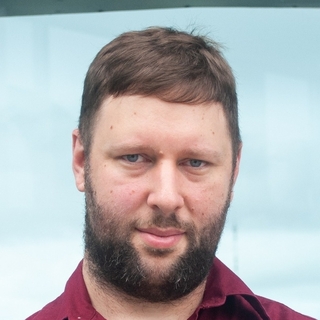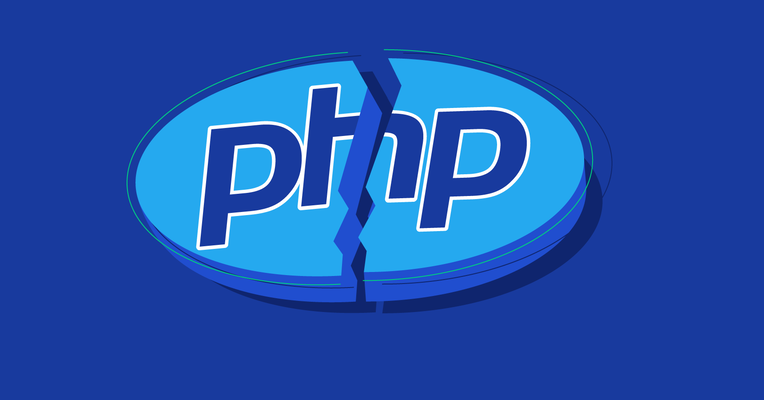
Hire Symfony Developers
Hire the Top 3% of Freelance Symfony Developers
Hire vetted Symfony developers, experts, and programmers on demand. Leading companies choose Symfony freelancers from Toptal for their most important development projects.
No-Risk Trial, Pay Only If Satisfied.
Hire Freelance Symfony Developers
Javier Loffredo
For the past decade, Javier has been working as a professional developer. He loves working on projects that challenge him and where he can learn new things. Javier mainly develops in PHP using the Symfony framework (lately using 5) and MySQL as the database server.
Show MoreJohnmicah Potter
Bank of America, Anthem, and Lowe's are just a few of the companies that Johnmicah has worked at. He has 18 years of experience building web applications from not only both the front and back ends but also the platform and infrastructure sides. Johnmicah is passionate about performance, automation, and containerization. Johnmicah is also capable of fitting into and improving an existing team environment or building a new one from the ground up.
Show MoreZsolt Rácz
Zsolt has over 10 years of experience in full-stack development, mainly with Angular, Node.js, and Symfony. With his deep engineering knowledge, leadership experience, and holistic approach, he provides extraordinary value and understands what it takes to build stable, robust tools for extremely high-traffic use (e.g., 18 million monthly users for a video-on-demand service). Recognized as a team player, Zsolt considers himself a quick learner motivated by challenges.
Show MoreJhonny Khadra
Jhonny is a seasoned senior software engineer and solution architect with expertise in PHP, Symfony, and front-end frameworks like React and Angular. He has worked with SimpleTire, INCENT Corporate Services, and Fify Online Services, developing APIs and reusable code and leading technical migrations. With a master's degree in software engineering from Antonine University, Jhonny excels in CI/CD practices, blockchain technology, and technical leadership.
Show MoreOliver Ullman
Oliver is a React expert who has worked with high-profile clients such as Facebook, Chess.com, and Diem and a full-stack developer who brings energy and intelligence to any team he joins. Oliver's clients value his rapid pace of development and high throughput. His love of programming comes from writing clean, elegant, and scalable solutions.
Show MoreSam Anthony
Sam has 20 years of experience in web development and is passionate about creating clean and maintainable code. His main forte is back-end development and DevOps and Cloud infrastructure. Sam has experience working with a corporate team in London to independently working on his startup in a home office.
Show MoreFarid Ahmadov
Farid is an honest and dedicated person who loves to learn new things and overcome challenges. He's worked on many types of projects, including programs for machine learning and research, marketing, and business management. Farid has been described as a concise and capable communicator with a talent for algorithms.
Show MoreAnas Bin Izhar
Anas is an IT security engineer with five years of experience helping organizations secure their SaaS platforms from threat actors. He is an expert in application security, cloud security, penetration testing, and information system compliance, including ISO 27001 and SOC 2. With keen attention to detail and the ability to adapt to a fast-paced environment, Anas outperforms clients' expectations and provides agile and secure solutions to meet their business needs.
Show MoreManas Bala
Manas has several years of experience with Symfony, PHP, and SQL. He is skilled in the development of back-end APIs, payment gateway integration, third-party web application integration, performance tuning, and automated testing. A computer engineer, he loves to solve complex problems and develop full-featured back-end applications.
Show MoreArtem Rodygin
Artem is a Zend Certified PHP developer with over 20 years of experience in web development. Besides being a technical authority, he is very good at communicating complicated issues in a simple way. Artem believes that actions speak louder than words.
Show MoreArtem Galtsev
Artem is a web developer and programmer with over 15 years of experience in the field. He enjoys taking part in exciting and challenging projects that enable him to apply and further his skills. Artem has been working for large companies and also as a freelance professional, and he is looking forward to taking on new projects.
Show MoreDiscover More Symfony Developers in the Toptal Network
Start HiringA Hiring Guide
Guide to Hiring a Great Symfony Developer
Symfony is one of the most popular PHP frameworks for building robust full-stack web apps that can scale with a growing business. But with demand for web development specialists on the rise, it’s challenging to find the right Symfony developers to meet your needs. This hiring guide provides the information to help you make an informed decision when screening candidates.
Read Hiring Guide... allows corporations to quickly assemble teams that have the right skills for specific projects.

Despite accelerating demand for coders, Toptal prides itself on almost Ivy League-level vetting.









How to Hire Symfony Experts Through Toptal
Talk to One of Our Client Advisors
Work With Hand-selected Talent
The Right Fit, Guaranteed
EXCEPTIONAL TALENT
How We Source the Top 3% of Symfony Developers
Our name “Toptal” comes from Top Talent—meaning we constantly strive to find and work with the best from around the world. Our rigorous screening process identifies experts in their domains who have passion and drive.
Of the thousands of applications Toptal sees each month, typically fewer than 3% are accepted.
Capabilities of Symfony Developers
Harness the power of Toptal’s expert Symfony developers to build dynamic, high-performing PHP applications. Our developers leverage Symfony’s modular architecture and reusable components to craft solutions that adapt to your business’ growing needs.
Building Scalable Web Applications
RESTful API Development
Database Management With Doctrine ORM
Custom Symfony Bundles
User Authentication and Security
Twig Templating for Front-end Development
E-commerce Solutions
Microservices Architecture
Performance Optimization and Caching
Testing With PHPUnit
FAQs
The cost associated with hiring a Symfony developer depends on various factors, including preferred talent location, complexity and size of the project you’re hiring for, seniority, engagement commitment (hourly, part-time, or full-time), and more. In the US, for example, Glassdoor’s reported average total annual pay for Symfony developers is $160,000 as of September 2024. With Toptal, you can speak with an expert talent matcher who will help you understand the cost of talent with the right skills and seniority level for your needs. To get started, schedule a call with us — it’s free, and there’s no obligation to hire with Toptal.
Typically, you can hire Symfony developers with Toptal in about 48 hours. For larger teams of talent or Managed Delivery, timelines may vary. Our talent matchers are highly skilled in the same fields they’re matching in—they’re not recruiters or HR reps. They’ll work with you to understand your goals, technical needs, and team dynamics, and match you with ideal candidates from our vetted global talent network.
Once you select your Symfony developer, you’ll have a no-risk trial period to ensure they’re the perfect fit. Our matching process has a 98% trial-to-hire rate, so you can rest assured that you’re getting the best fit every time.
To hire the right Symfony expert, it’s important to evaluate a candidate’s experience, technical skills, and communication skills. You’ll also want to consider the fit with your particular industry, company, and project. Toptal’s rigorous screening process ensures that every member of our network has excellent experience and skills, and our team will match you with the perfect Symfony developers for your project.
At Toptal, we thoroughly screen our Symfony programmers to ensure we only match you with the highest caliber of talent. Of the more than 200,000 people who apply to join the Toptal network each year, fewer than 3% make the cut.
In addition to screening for industry-leading expertise, we also assess candidates’ language and interpersonal skills to ensure that you have a smooth working relationship.
When you hire Symfony programmers with Toptal, you’ll always work with world-class, custom-matched Symfony developers ready to help you achieve your goals.
You can hire Symfony developers on an hourly, part-time, or full-time basis. Toptal can also manage the entire project from end-to-end with our Managed Delivery offering. Whether you hire a Symfony developer for a full- or part-time position, you’ll have the control and flexibility to scale your team up or down as your needs evolve. Our Symfony developers can fully integrate into your existing team for a seamless working experience.
We make sure that each engagement between you and your Symfony developer begins with a trial period of up to two weeks. This means that you have time to confirm the engagement will be successful. If you’re completely satisfied with the results, we’ll bill you for the time and continue the engagement for as long as you’d like. If you’re not completely satisfied, you won’t be billed. From there, we can either part ways, or we can provide you with another Symfony developer who may be a better fit and with whom we will begin a second, no-risk trial.

How to Hire Symfony Developers
Demand for Symfony Developers Remains High
Symfony is one of the most popular open-source PHP web application frameworks, used by over 100,000 organizations to build complex, enterprise-level web applications, thus creating a steadily increasing demand for Symfony specialists. Its modular and extensible architecture, as well as its adherence to best practices and design patterns, have made it a favorite choice for building maintainable and scalable web apps across a variety of industries. Whether organizations are launching a new app, optimizing an existing Symfony-based system, or migrating legacy codebases, the need for skilled developers remains high.
But the ever-increasing need for robust apps has intensified the challenges inherent in finding exceptional applicants who meet your needs.. The Symfony framework requires a specific set of skills, including deep PHP knowledge, understanding of MVC architecture, and proficiency with Doctrine object-relational mapping (ORM) and Twig templating. Identifying candidates who can effectively leverage the framework’s features for complex applications adds another layer of difficulty to the hiring process.
This guide aims to streamline your search for top Symfony talent. We’ll help you understand the role of a Symfony developer in your organization, covering essential skills and technologies to look for. You’ll learn how to differentiate between junior, mid-level, and senior developers, craft compelling job descriptions, and conduct effective interviews. Whether you’re building enterprise applications, creating APIs, or maintaining existing Symfony projects, this guide will coach you in how to find developers who can maximize the framework’s potential for your specific needs.
What Attributes Distinguish Quality Symfony Developers From Others?
Evaluating Symfony developer candidates requires an understanding of the essential skills and experience needed to build successful web applications with the framework. Ideal candidates should demonstrate proficiency across several key areas:
PHP – Symfony programmers must have a strong command of the PHP programming language. This includes familiarity with object-oriented programming concepts, design patterns, and the latest language features and best practices. Candidates should be well versed in modern back-end development, including the use of Composer for dependency management, PSR-4 autoloading, and the adoption of newer language features like type declarations and anonymous functions. They should also have experience with debugging and optimizing code.
Symfony-specific Knowledge – Beyond just PHP expertise, Symfony developers should have in-depth knowledge of the framework’s core components, architecture, and best practices. This includes understanding its routing system, templating engine, database integration (often through the Doctrine ORM), security features, and the various bundles and packages that extend the framework’s functionality.
Full-stack Web Development – While Symfony is primarily focused on the server side, experienced developers will also possess skills in complementary front-end technologies like HTML, CSS, JavaScript, and modern front-end frameworks like Vue.js or React. This full-stack expertise allows them to implement web applications that seamlessly integrate the back-end and front-end components and deliver a smooth and intuitive user experience.
Database Expertise – Many Symfony applications rely on database integration, so developers should have experience working with SQL databases like MySQL, PostgreSQL, or Microsoft SQL Server. Additionally, knowledge of ORM tools like Doctrine, with which Symfony can seamlessly integrate, is highly valuable.
Complementary Technology Skills for Symfony Developers
In addition to core Symfony and PHP experience, there are many complementary technologies that can be valuable for Symfony specialists, depending on the specific use case:
Linux/Unix – As a server-side framework, Symfony applications are often deployed on Linux or Unix-based environments. Familiarity with the command line, system administration tasks, and DevOps tooling is essential for developers to understand the full technology stack and ensure smooth deployment and operation.
Composer – Symfony makes heavy use of PHP’s dependency management tool, Composer, for installing and managing third-party libraries and packages. Symfony specialists should be comfortable using Composer in their workflows, including managing dependencies, creating and publishing Composer packages, and understanding how to leverage Composer’s autoloading capabilities.
Redis/Memcached – These in-memory data stores are commonly used to improve the performance of Symfony applications by caching database queries, session data, and other frequently accessed information. Programmers with experience in leveraging these caching solutions can help optimize the performance and scalability of their applications.
RabbitMQ/Kafka – For building scalable, asynchronous architectures, Symfony developers may integrate message queuing technologies like RabbitMQ or Kafka to decouple different application components and improve the overall responsiveness and reliability of their applications.
Elasticsearch – This distributed search-and-analytics engine is often used in Symfony applications that require robust full-text search capabilities or complex data analysis. Engineers familiar with Elasticsearch can help implement advanced search features and build data-driven applications.
Front-end Frameworks – While not strictly required, Symfony developers who also have experience with modern JavaScript frameworks like React, Vue.js, or Angular can bring additional value by building highly interactive and responsive user interfaces that seamlessly integrate with the Symfony back end.
Docker/Kubernetes – As applications become more complex and scalable, containers and orchestration platforms like Docker and Kubernetes become invaluable for packaging, deploying, and managing the application infrastructure. Developers with experience in containerization and cloud-native architectures can help organizations streamline their deployment and operations processes.
Monitoring and Logging – Maintaining the health and performance of an application in production requires robust monitoring and logging capabilities. In addition to Elasticsearch, developers should be familiar with Logstash and Kibana (known as the ELK stack) or alternatives like Datadog and New Relic to implement comprehensive observability solutions.
Continuous Integration/Continuous Deployment (CI/CD) – Symfony projects often benefit from the implementation of CI/CD pipelines to automate the build, test, and deployment processes. Experienced software engineers should have knowledge of tools like Jenkins, GitLab CI/CD, or GitHub Actions, and understand how to integrate them with the software development life cycle.
Microservices Architecture – As applications scale, a monolithic architecture may become unwieldy. Symfony developers with experience in building microservices-based architectures can help organizations break down their applications into smaller, more manageable services that can be independently deployed and scaled.
Agile Methodologies – Modern software development often takes place in an agile software development environment, where developers collaborate closely with product owners, designers, and other stakeholders. Familiarity with agile practices like scrum, kanban, and continuous planning can help programmers seamlessly integrate with cross-functional teams.
Possessing these complementary skills, in addition to core Symfony expertise, can make Symfony developers even more valuable to organizations looking to build robust, scalable, and maintainable web applications.
How Can You Identify the Ideal Symfony Developer for You?
To find the right Symfony specialist for your project, it’s important to first clearly define your requirements and objectives. Consider factors such as:
- The complexity of your application (e.g., greenfield project, legacy system migration, etc.)
- Any specialized features or integrations your app requires (e.g., e-commerce, enterprise authentication, business intelligence, etc.)
- The size and structure of your in-house development team
- Your budget and timeline constraints
With these factors in mind, you can then evaluate candidates based on their relevant experience and level of seniority:
Junior Developers – These developers typically have one to two years of experience with the Symfony framework. They can implement basic features and functionality but may require guidance and mentorship from more senior team members, especially for complex architectural decisions or integrations. Junior developers should have a solid grasp of PHP programming and be familiar with the Symfony framework’s core components, such as routing, templating, and database integration; however, they may not yet have experience with more advanced features or best practices for building scalable, enterprise-grade web applications. Junior developers typically have lower rates and can be cost-effective additions to teams with more experienced developers.
Mid-level Developers – Developers with three to five years of experience can work independently on a wide range of Symfony-based projects. Beyond strong PHP skills in general, they should have a solid understanding of the framework’s core components, as well as experience integrating Symfony with various databases, caching solutions, message queues, and front-end technologies. Mid-level developers are often able to design and implement modular, maintainable architectures and contribute to developing more complex features and integrations. They may also take on some mentorship responsibilities for junior team members.
Senior Developers – A developer at a senior level will have five or more years of experience and can take on the most complex Symfony projects. They should be able to design and implement scalable, maintainable architectures, mentor junior developers, and collaborate effectively with stakeholders to align technical decisions with business requirements. These seasoned developers will have a deep understanding of Symfony’s internals and best practices, which will allow them to optimize performance, improve security, and ensure the long-term viability of Symfony-based applications.
In addition to the core Symfony and PHP skills, senior developers may also possess expertise in complementary technologies such as message queues, caching solutions, search engines, and front-end frameworks. They can leverage this broad technical knowledge to build high-performance, enterprise-grade web applications that integrate seamlessly with various systems and services.
Frequent Use Cases and Related Skills
Symfony developers may be involved in a variety of web application development use cases, each with its own set of required skills:
Enterprise Web Applications – Symfony’s robust features and adherence to best practices make it a popular choice for building large-scale, mission-critical web applications for enterprises. Relevant skills include integration with single sign-on (SSO) providers, complex access control and authorization logic, and scalable data persistence using technologies like SQL databases, caching solutions, and message queues.
E-commerce Platforms – Symfony’s flexibility allows developers to build highly customized e-commerce solutions. Key skills include payment gateway integrations, shopping cart functionality, order management workflows, and the ability to leverage Symfony’s extensibility through the use of third-party bundles and packages.
Content Management Systems – Symfony’s decoupled architecture makes it a good fit for building headless CMS solutions. Developers should have experience with content modeling, multisite/multilingual support, and API-driven front-end integrations using technologies like REST or GraphQL.
API Development – Symfony provides powerful tools for building GraphQL and RESTful APIs. Relevant skills include API design, documentation, versioning, and authentication/authorization mechanisms, as well as the ability to integrate Symfony’s API features with other components like the routing system and the serializer.
Enterprise Resource Planning (ERP) Systems – Symfony’s flexibility and scalability make it a popular choice for building custom ERP solutions that integrate disparate business processes and data sources. Relevant skills include API development, complex data modeling, and integration with legacy systems.
Customer Relationship Management (CRM) Platforms – Symfony can be used to build highly customized CRM applications that streamline sales, marketing, and customer service workflows. Key skills include multi-tenant architecture, security and access control, and integration with third-party services like email, calendars, and analytics.
E-learning and Training Platforms – Symfony’s modular architecture lends itself well to the development of feature-rich e-learning platforms, with skills such as user management, course creation and enrollment, and certification management.
By highlighting these common use cases and the associated technical skills, you can better assess whether a candidate has the relevant experience to meet your specific project requirements.
How to Write a Symfony Developer Job Description for Your Project
When preparing a job description for a dedicated Symfony developer role, focus on outlining the specific responsibilities and requirements of the position rather than just listing technologies. Provide context about your organization, the project, and the problems the developer will be tasked with solving.
Be sure to include details about the project’s scope, technical stack, and any specialized features or integrations. Highlight the core skills you’re seeking, such as proficiency in the Symfony framework, PHP programming, database integration, and software engineering best practices. Highlight any additional languages the candidate may work with, such as Java or .NET, in addition to related frameworks like Laravel.
In your job description, emphasize the business value and impact that the Symfony developer will have, rather than just listing technical requirements. Provide a high-level overview of your organization, the project’s business needs, and the challenges the developer will be tasked with solving. Some engineers prefer to work on complex integrations at large enterprises, while others favor the challenges of developing greenfield projects at startups.
For example, you might highlight how the Symfony developer will play a key role in modernizing your e-commerce platform, improving customer experience, and driving revenue growth. Or you could emphasize how their expertise in integrating Symfony with enterprise systems will help streamline your organization’s operations and reduce costs.
Finally, don’t forget to include details about your team structure, project management methodologies, development process, and whether the role is full time, part time, or contract-based. This information will help candidates determine if your organization and project are the right fit for their skills and career goals.
By crafting a well-rounded job description that highlights the business value and technical requirements, you can attract the top talent for your project.
What Are the Most Important Symfony Developer Interview Questions?
When interviewing, aim to assess their technical expertise, problem-solving abilities, and fit with your company culture. Here are some key questions to consider:
Can you explain the Model-View-Controller (MVC) architectural pattern and how it is implemented in Symfony?
The ideal candidate will likely have some exposure to a wide array of framework-specific tools available to implement MVC, and this question helps probe the depth of their experience. The MVC architectural pattern provides a well-structured approach to organizing the various components of a web application. At its core, this pattern separates an application’s logic into three interconnected parts: the Model, which encapsulates the data and business rules; the View, responsible for the presentation of that data to the user; and the Controller, acting as an intermediary that receives user input and coordinates the appropriate Model and View elements. Symfony embraces this MVC pattern throughout its core architecture. Within an application, the Model is typically implemented using the powerful Doctrine ORM for managing database interactions; the View utilizes the flexible Twig templating engine for rendering HTML; and the Controller orchestrates incoming requests, validates user input, and brings together the necessary Model and View components to generate the desired response.
Describe a complex Symfony project you’ve worked on and the architectural decisions you made.
This question allows candidates to showcase their problem-solving skills and ability to design scalable, maintainable solutions. The response should highlight the candidate’s approach to analyzing project requirements, identifying architectural trade-offs, and implementing a modular, service-oriented structure. This provides valuable insight into the candidate’s technical depth, as well as their strategic thinking and decision-making capabilities when faced with complex development challenges.
How would you approach optimizing the performance of an application that is experiencing slow response times?
This follows up on the previous performance-related question, delving deeper into the candidate’s troubleshooting and optimization skills. The response should demonstrate the candidate’s familiarity with profiling tools, their understanding of common performance bottlenecks, and their ability to implement targeted solutions. The best candidates will take a methodical, data-driven approach to identify and address the root causes. Beginning with profiling the application to pinpoint any bottlenecks, such as slow database queries, inefficient algorithms, or excessive HTTP requests, the candidate could leverage tools like the Symfony Profiler and New Relic to gain valuable insights into the application’s performance characteristics. Armed with this data, the candidate would then work to optimize the identified problem areas, which may involve techniques like database indexing, caching of database queries and rendered views, and the asynchronous processing of long-running tasks. Additionally, the candidate would review the application’s usage of third-party libraries, ensuring that they are not introducing unnecessary overhead. Finally, the candidate would implement comprehensive monitoring and alerting to proactively detect and address any future performance regressions.
How does Symfony’s Dependency Injection Container work, and why is it important?
This question assesses the candidate’s understanding of a core Symfony component and their grasp of software design principles. The Dependency Injection Container (DIC) is a central feature of Symfony that manages object creation and the lifetime of dependencies. It implements the Dependency Inversion Principle, promoting loosely coupled, maintainable code. The DIC defines services as reusable objects, which can be injected where needed, typically through constructor injection. Services are defined in configuration files or annotations, and the DIC compiles these into an efficient container class. The DIC’s importance lies in its promotion of modular, testable code, simplifying unit testing and enhancing code reusability. It also facilitates the implementation of design patterns like strategy and decorator, allowing for more flexible and extensible applications.
Explain Symfony’s EventDispatcher system and provide an example of how you might use it in a real-world scenario.
This question evaluates the candidate’s understanding of Symfony’s event-driven architecture and their ability to apply it practically. Symfony’s EventDispatcher implements the observer pattern, allowing different parts of an application to communicate without direct coupling. It consists of the event dispatcher, events, and listeners or subscribers. A real-world example could be implementing a flexible logging system in an e-commerce application. The candidate might describe defining custom events for actions like product views or purchases, then creating listeners to record this information to a database or external service. This approach allows for a modular, extensible logging system that can be easily modified or expanded without altering core application logic.
Why Do Companies Hire Symfony Developers?
Symfony’s adoption by enterprise-level organizations such as Spotify, The Guardian, and Nasdaq has solidified its reputation as a reliable and scalable framework for building mission-critical web applications. Companies looking to take advantage of the framework’s proven track record often seek out experienced developers who can navigate the complexities of enterprise-grade software development and deliver high-quality, maintainable solutions. Hiring Symfony developers also aligns with the growing demand for PHP expertise in the web development job market. Companies hire Symfony experts to leverage the framework’s robust features, scalability, and strong community support, ultimately delivering top-notch web applications that align with their business goals.
Featured Toptal Symfony Publications
Top Symfony Developers Are in High Demand.























